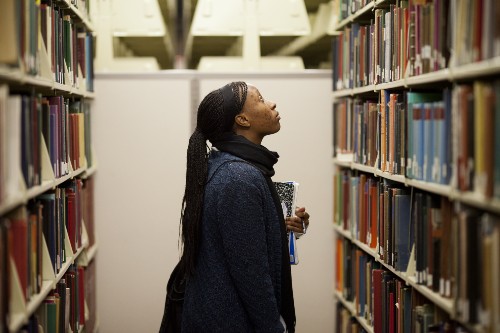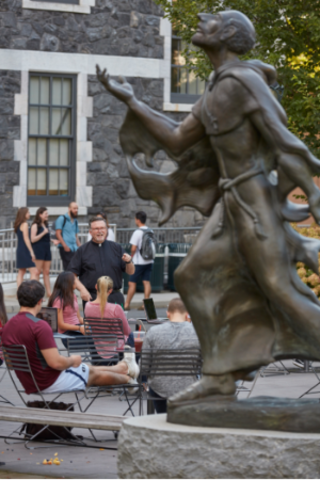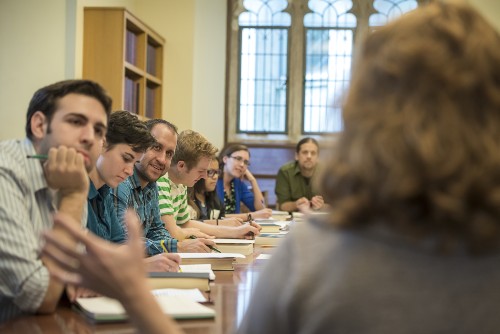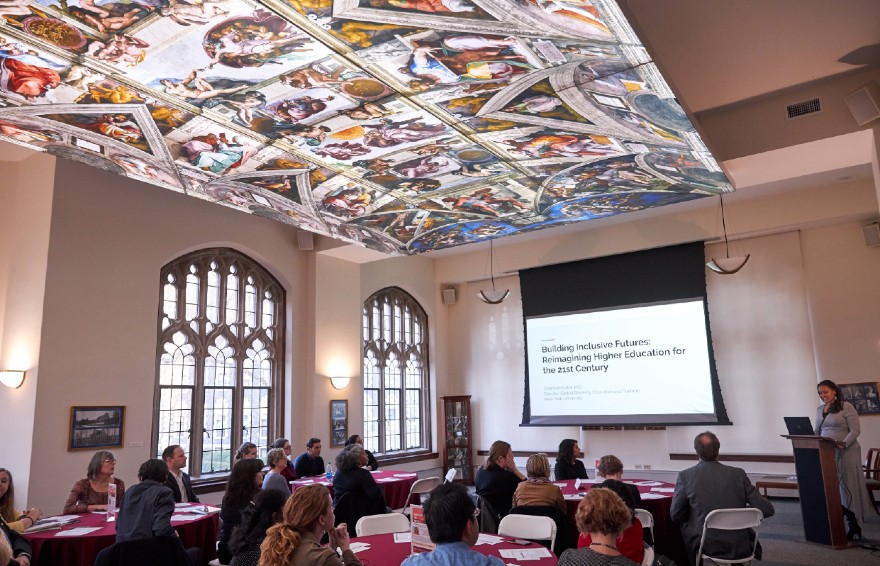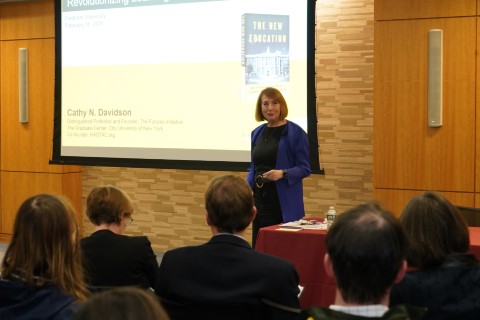By: Julie Fissinger
Reading Group Participant
Executive Director of the President’s Council
Development and University Relations
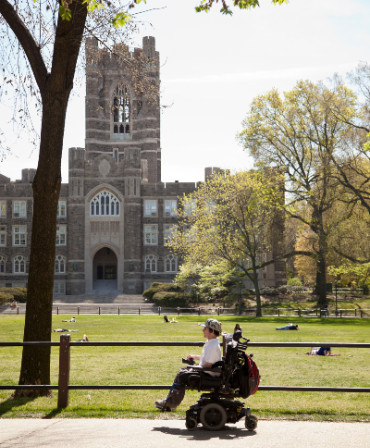
As a member of Fordham’s development team for many years, I have had the privilege of meeting with generations of Fordham alumni, who have told a now familiar story of their lives being transformed by their Jesuit education. Often the first in their family to graduate from college, their Fordham diploma opened the world to them, and in turn, to their children. It is because of these compelling stories and witnessing the power of this same transformative education in the students I encounter today, that I am invested more than ever in Fordham’s enduring mission; a mission that retains relevance, appeal, and imperative.
Founded in 1841 to educate immigrants who were not welcome elsewhere, Fordham has been committed to access and empowerment of the marginalized since its inception. While access and marginalized may be more modern descriptions, Fordham has, nonetheless, held these values close for 175 years. It is this continued commitment, combined with intellectual rigor grounded in the humanities and an emphasis on service, reflection and justice, that arguably make Fordham a modern-day university ahead of its time.
Furthermore, Fordham’s location in the Bronx, one of the poorest congressional districts in the country, doesn’t afford an “ivory tower-ish” approach to social justice, but rather it provides opportunity. The poor and oppressed are right outside of our gates. I think we all agree that we can and we should do more to ensure equity, including more outreach to our immediate community, reforming curriculum and teaching, and addressing cost. Whether studying science, business, or the humanities, student formation is at its best and the most powerful when rooted in the cause of the human family. Thankfully, the building blocks, beginning with Catholic social teaching on the dignity of the human person and the paramount of the common good, are in our toolbox.
This past semester I had the privilege of being a member of the ReIMAGINE Reading Group, which caused me to think more deeply about our mission, how it connects to equity and how we must continue to hold Fordham to its mission. It also made me more observant and mindful of the wider higher education landscape, especially during this most recent and challenging chapter. Would students thrive in online learning? Would faculty and administrators remain focused on their work?
I believe many would agree that if Fordham has a “super power” it is our sense of community; a community that is immediately tangible to visitors and newcomers. However, if community is our super power, how does that strength translate in a pandemic? As it turns out, we learned that community is also our saving grace. Certainly our students missed gathering for class, as well as for senior week and commencement, and faculty and staff missed waving hello to one another on campus, grabbing coffee and having lunch together. Yet, it is the sense of community that sustained us, gave us the will to move on, and find a way forward. Fordham’s community is a product of its mission, a notion that we are companions with a higher purpose. In fact, new mental health research on wellness and happiness reveals the importance of gratitude and generosity, two staples of a Fordham education, leaving other institutions trying to emulate and catch-up to where we’ve always been.
As we look ahead, let’s challenge each other to fortify that Fordham difference, leaning into mission, rather than away from it, and allowing it to propel the University into the future; a future that hungers for a deep and purposeful education infused with Ignatian values, and with a goal of making the world a more just, equal and loving place. At this moment in time, what more could we need and ask for?

